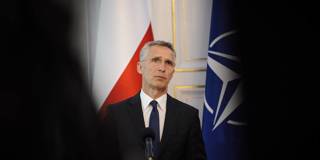The United States and its European NATO allies disagree on many important issues, but their cooperation within the Alliance is better than it has been in years. Poland and the rest of NATO’s Eastern flank in particular hope that this paradox persists.
WARSAW – As it turns 70, NATO is facing its most severe challenges since the Cold War ended nearly three decades ago. The Alliance has been rocked by Russia’s illegal annexation of Crimea and its invasion of the Donbas region in eastern Ukraine; US President Donald Trump’s stinging criticism; and the United Kingdom’s Brexit-fueled metamorphosis into Little England. Despite these setbacks, NATO has significantly strengthened its commitment to Central and Eastern Europe in recent years. Yet it needs to do more.

WARSAW – As it turns 70, NATO is facing its most severe challenges since the Cold War ended nearly three decades ago. The Alliance has been rocked by Russia’s illegal annexation of Crimea and its invasion of the Donbas region in eastern Ukraine; US President Donald Trump’s stinging criticism; and the United Kingdom’s Brexit-fueled metamorphosis into Little England. Despite these setbacks, NATO has significantly strengthened its commitment to Central and Eastern Europe in recent years. Yet it needs to do more.